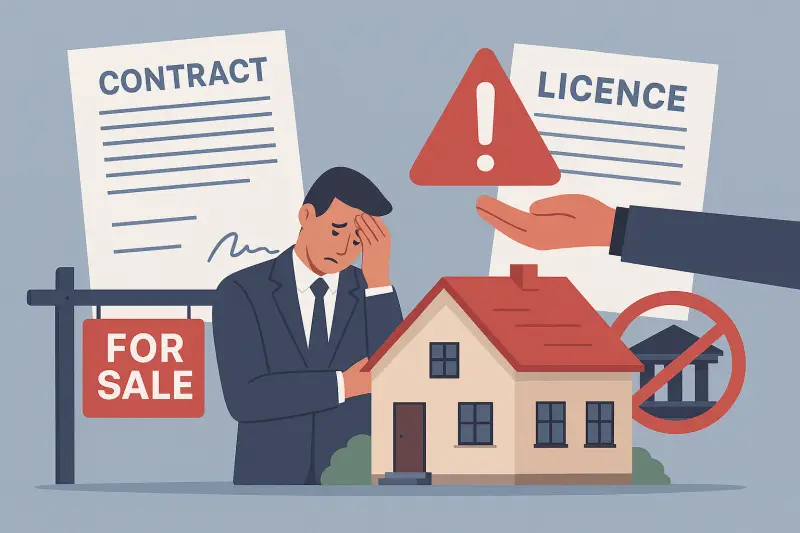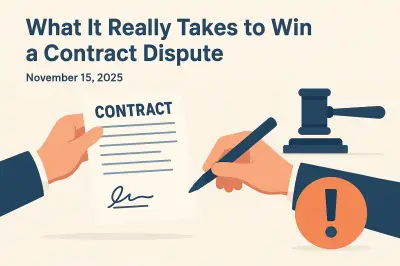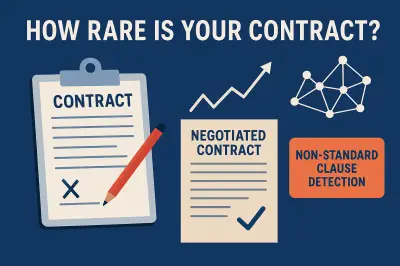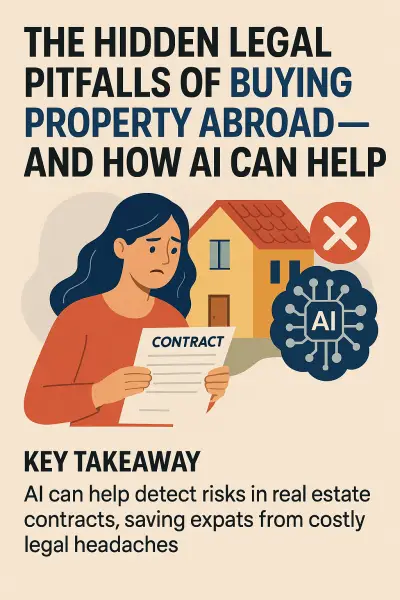The Quiet Legal Fallout After Buying a Home

Listen to this article
The Risks Nobody Warned You About!
Why thousands of property buyers across Southern Europe end up fixing someone else’s mistakes — quietly, and at great cost.
When most people think of property disputes, they imagine dramatic court cases — angry buyers suing sellers, lawyers in suits, and judges deciding who was right. But in reality, that’s not how most property problems unfold. The real damage happens quietly, over months or years, buried under paperwork, bureaucracy, and missed details.
Across Southern Europe — especially in Portugal, Spain, and Italy — the majority of legal headaches after a house purchase are not disputes in court. They’re administrative traps that new owners fall into long after the deal has closed.
The Hidden History in Southern European Homes
Much of the housing stock in Southern Europe was built or altered during periods of rapid expansion, often without strict oversight. Over time, extensions, terraces, pools, and annexes were added informally — sometimes “tolerated,” sometimes ignored.
“The paperwork often tells a different story than the building itself.”
When you buy such a property, municipal records might show a smaller footprint, missing structures, or outdated habitation licenses. The notary’s job is to verify ownership — not technical legality — so the sale goes through. Months later, the new owner receives a letter from the council: “There is no record of a valid habitation license for this property.”
How the Problem Unfolds
- Demands to regularise unlicensed construction
- Architectural and engineering reports costing thousands
- Fines for noncompliance or unauthorized works
- Delays in resale or refinancing due to unresolved issues
There’s rarely a court case — just endless administration, uncertainty, and cost.
Legal Responsibility Transfers at Sale
Under Portuguese and EU law, buyers inherit the property’s administrative history. If something was built illegally, you become the responsible party. Sellers can hide behind plausible deniability, and buyers end up footing the bill to legalise or repair the damage.
“This dynamic rewards bad actors — and punishes the conscientious.”
The Real Risk: Administrative, Not Judicial
While only a small percentage of property sales end up in court, the real fallout happens quietly: in licensing, regularisation, and compliance. Local professionals estimate that up to one in three transactions on older homes require post-sale regularisation work.
What Smart Buyers Are Doing Differently
- Commissioning full technical compliance reviews
- Using AI-driven document analysis
- Adding clauses that make sellers liable for undisclosed irregularities
- Escrow retention for pending documentation
- Including ADR clauses for faster resolution
These steps transform what used to be “buyer beware” into “buyer empowered.”
Why KYC Exists
At KYC, we believe property transactions shouldn’t rely on luck or blind trust. Our tools help buyers uncover hidden legal and administrative risks before they buy — ensuring they can negotiate from strength, not fear. From AI-assisted contract reviews to expert compliance reports, we help ensure your investment is legally solid underneath.



